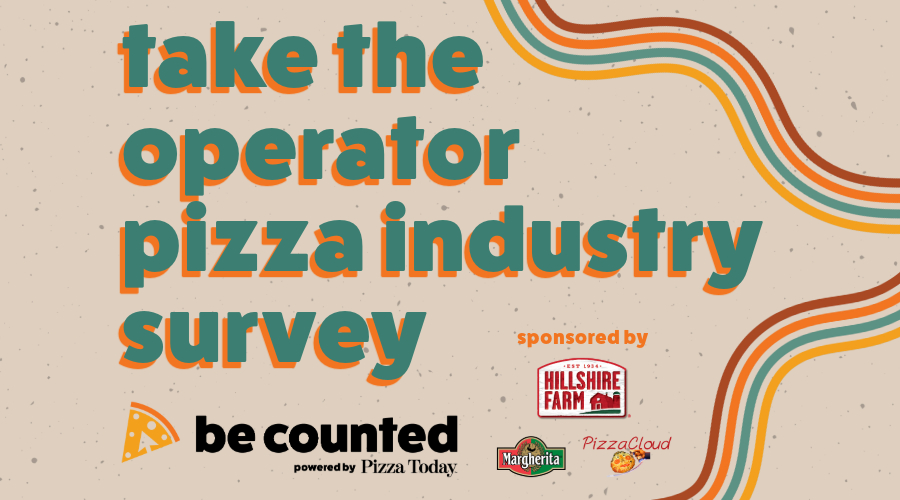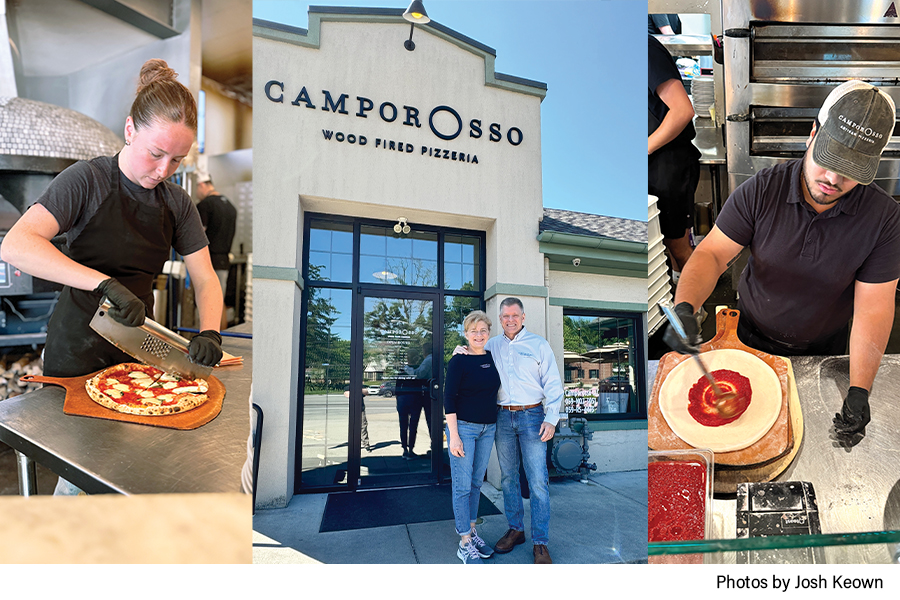Strategies to improve your hiring game
Hiring has always been critical, but it’s more important than ever for the post-COVID pizzeria operator.
Lots of workers have left the service industry, and those that are left have higher expectations than ever. Good candidates are snapped up quickly, so competition is fierce.
As Rebecca Hebert, business development representative at 7shifts, says, “the script was flipped on us. It used to be people would come to us. Now we’re the ones searching for them and selling ourselves.” 7shifts is a team management solution for restaurants.
Here’s some actionable advice to help you improve your hiring game.
FINDING APPLICANTS
“Our number-one tip is to ask your existing employees, especially if they’re good,” advises Chuck Hammers, president (or “Big Cheese”) at Pizza My Heart, a Northern California counter-service chain with 27 locations. “Employees refer other employees, and that’s our number-one strategy.”
Jack Hott, director of product management at Poached, says “…go where the workers are.” Poached is a nationwide hiring platform for the hospitality industry. He also urges “when writing a job ad, put yourself in the worker’s shoes. Instead of requiring five years experience, you can phrase it more inclusively as someone with five years experience would be more successful in this role. Also, be concise. Our app is becoming our dominant platform for job applications, and there’s less screen space.”
“My number one tip is you need to respond to a potential candidate within 24 hours,” urges Dan Kezner of Kezner Consulting Group, which consults for new and existing restaurants and other hospitality enterprises. “The best platform that we work with is Poached, but I also encourage my clients to have an applicant tracking system that can aggregate multiple places where you’re posting jobs, so you don’t lose potential employees. Our customizable tool lets you track people visually through a pipeline, whether it be screening, call, first interview, second interview, all the way through to job offer, or rejecting a potential candidate.”
“Make it easy for them,” says Hebert. “Utilize everything online, have something on your website, use Indeed, use social media, go to where they are and don’t disqualify based on lack of experience.”
SELL YOURSELF
“You need to sell yourself to the applicant just the same way that you sell yourself to the consumer,” advises Ken Batali, owner of Batali Associates Hospitality Consulting, serving the Pacific Northwest.
Hebert agrees. “You really have to market your business and your culture. Sell what you’re offering beyond just pay and benefits – growth opportunities, a lifestyle, a work family.”
Hott affirms that a positive work culture is critical. In addition, he says workers value pay, job descriptions and career opportunities. “People want to know they can advance.”
VETTING APPLICANTS
Hott suggests you start by “writing down your must-haves, your nice-to-haves, and any deal-breakers,” to use as an evaluation framework.
Hebert recommends making your non-negotiables clear in online applications and postings and relying on “some preliminary questions to help you screen people before they come in so you’re not wasting anybody’s time.”
This is also a good time to identify any deal-breakers, such as scheduling conflicts or a history of theft or harassment.
INTERVIEWING APPLICANTS
“Make it professional,” says Hebert. “Have a system in place and be consistent. I highly recommend a two-step process, whether it’s the same day or not. Have them meet with multiple team members, do a working interview, really take the time to make sure it’s a good fit on both ends. Give them that opportunity to investigate you. Be an open book.”
Batali also likes to bring prospects in for a stage (working interview), “for both front and back of the house. Just be in the environment for a couple of hours to see how they fit in.” He also advises that operators have written questions to provide structure and consistency to their interview process.
“One of the biggest things we try to establish is if the person has a hospitality mindset, if it’s truly in their DNA to provide good hospitality” reflects Kezner.
Hammers says “I try to picture – could I go to a baseball game with this person? Could I sit with this person for three hours and have a conversation and walk away and say, that was fun? To me, that’s the biggest thing. That person can communicate and connect with someone that they’ve never met before and be instantly friendly and give great customer service.”
Reminding your candidates about the interview will increase the likelihood they’ll show up. It’s easy for people to forget these types of appointments, especially when they set it up while riding a bus or dashing between classes. Hott says that the Poached tool includes a friendly automated reminder which helps set both parties up for success. He also advises that “you have a consistent process for all of your candidates. You want them all to go through the same interview process and you want to document this. This will help with any legal considerations and help remove any unconscious bias. So have a form, take notes and retain the documentation.”
WHAT’S AN IDEAL CANDIDATE?
Having an idea about who you’re looking for is always helpful.
Batali says “an ideal candidate‘s probably somebody who’s a fan of the restaurant, because they’re already going to have a sense of pride and excitement to be there.”
“First and foremost, a hospitality mindset,” offers Kezner. “A willingness to work and keep a schedule, and potentially a proven track record.” He notes that low energy and a lack of enthusiasm are deal-breakers.
“I believe that as much as we’re in the pizza business, we’re in the people business too,” says Hammers. “There’s an expectation that our employees will be outgoing and really connect in a very short amount of time with their customers.” Even the cooks need to have some charisma. “They’re throwing the pizza right in front of the customers. And even if they’re not having direct conversations, the eye contact with the kid that’s mesmerized with the pizza flying in the air, it’s important.”
Our sources also emphasize that hiring and retention are two sides of the same coin. Master the retention game and you won’t have to hire as often. Nail the hiring and you’ll be bringing employees on board who you want to keep for the long haul. Prioritize retention and they will.
With wages up and competition fierce, don’t treat hiring as an afterthought. Screen, interview, and hire as if your business depended on it – because it does.
Annelise Kelly is a Portland, Oregon-based freelance writer.









